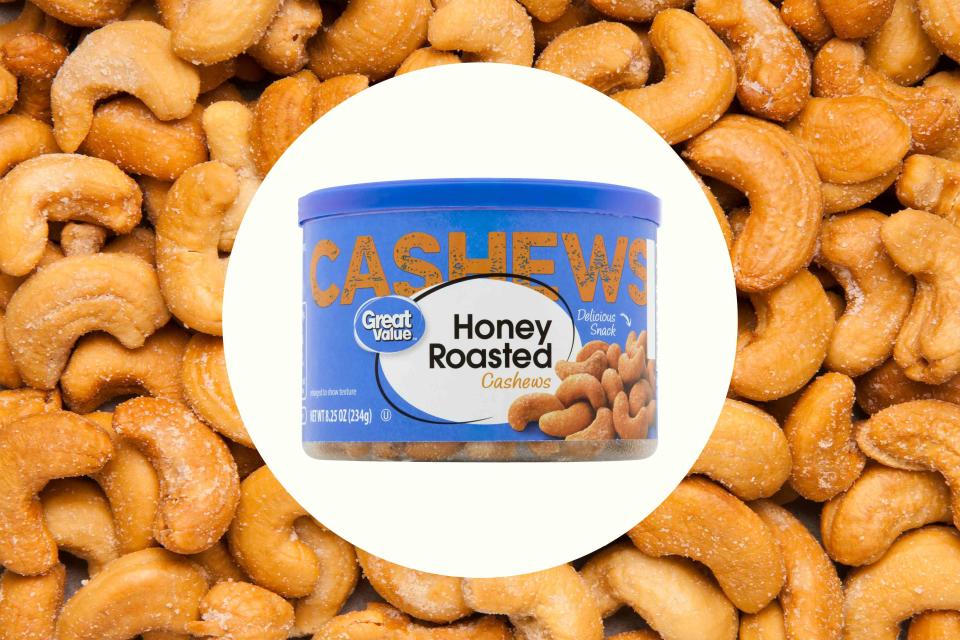Walmart Recalls Nuts Sold in 30 States Over Milk and Coconut Allergens
It's a case of interchanged labels.

Getty; Walmart
If you’ve recently purchased cashews from Walmart, now's the time to go check that package.
John B. Sanfilippo & Son, a supplier for the Arkansas-based big box retailer, is voluntarily recalling its 8.25-ounce Great Value Honey Roasted Cashews, according to a statement posted by the U.S. Food and Drug Administration. The nuts, which were sold in 30 states, are believed to contain “undeclared coconut and milk” allergens that could potentially cause “serious or life-threatening allergic reactions” for those with allergies or severe sensitivities.
Customers who believe they’ve purchased the affected cashews should check the below details and discard the product, which was sold in a plastic can with a blue wraparound label. The package can also be returned in-store for a full refund.
Best-by Date: July 08, 2025 (GH2)
UPC Number: 078742133348
The cashews were distributed through Walmart.com and at certain Walmart locations in the following states: Alabama, Arkansas, California, Colorado, Connecticut, Florida, Georgia, Hawaii, Illinois, Indiana, Kansas, Kentucky, Louisiana, Massachusetts, Missouri, North Carolina, Nebraska, New Jersey, New Mexico, Nevada, New York, Ohio, Pennsylvania, South Carolina, Tennessee, Texas, Vermont, and West Virginia.
Related: More Than 10,000 Cases of Shredded Cheese Recalled in 15 States Due to Listeria Contamination
The company issued the recall following a report that a consumer found coconut cashews mixed in with the honey-roasted cashews. And an investigation has since determined that during the manufacturing process, a “limited number” of Honey Roasted Cashew labels were applied to plastic cans containing the coconut cashews.
Consumers with more questions about the recall may get in touch with John B. Sanfilippo & Son Mondays through Fridays, from 8 a.m. to 5 p.m. CT, at 800-874-8734.
According to the Mayo Clinic, a milk allergy is among the most common for children and while cow’s milk is usually the culprit, “milk from sheep, goats, buffalo and other mammals also can cause a reaction.” Symptoms run the gamut and can sometimes present themselves by way of hives, sneezing, itching or tingling, coughing, and shortness of breath. Abdominal pain, diarrhea, watery eyes, and a runny nose are also symptoms, albeit ones that often take longer to develop.
It should also be noted that in severe cases, a milk allergy may cause anaphylaxis, a condition which can cause the body to go into shock, while narrowing the airways and restricting breathing. Milk remains the “third most common food — after peanuts and tree nuts — to cause anaphylaxis.”
Related: Chick-fil-A Issues Nationwide Recall of This Popular Dipping Sauce
Coconut allergies, on the other hand, are “relatively rare,” per the New York Allergy and Sinus Centers. However, symptoms are highly similar to those of milk allergies.
For more Food & Wine news, make sure to sign up for our newsletter!
Read the original article on Food & Wine.


